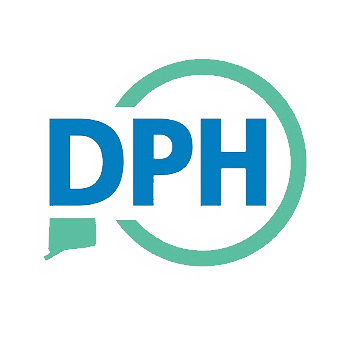Asthma Program
Asthma in Connecticut
Asthma is a chronic disease of the respiratory system that is characterized by reversible obstruction of the airways and airway hyper-responsiveness to a variety of stimuli. In Connecticut, it has been found that the following population subgroups are disproportionately affected by asthma: children, females, Hispanics, non-Hispanic Blacks, and residents of the state's five largest cities.
Statistics:
- Among Connecticut residents surveyed in 2018, 62,400 (9.7%) children and 290,300 (10.3%) adults suffered from asthma.
- In 2017, 7.9% of US children and 9.1% of US adults had asthma.
- Asthma is the single most avoidable cause of hospitalization, yet it is consistently one of the most common admitting diagnoses in pediatrics.
- In 2018, the age-adjusted rate for asthma hospitalization was 7.2 per 10,000 populations (about 2,400 hospitalizations) and for asthma emergency department (ED) visit was 57.9 per 10,000 populations (about 18,550 ED visits).
- In 2018, Connecticut incurred $102 million acute care charges due to asthma as a primary diagnosis.
- Of the $102 million asthma acute care charges, $56 million were for hospitalizations and $46 million were for emergency department (ED) visits.
- Of the $102 million, $74 million (73%) were charged to public funds (Medicaid or Medicare).
- Residents from the five largest cities (Bridgeport, Hartford, New Haven, Stamford, and Waterbury) account for 18% of Connecticut’s total population, yet they account for nearly half (44% or $43 million) of the $102 million asthma acute care charges in 2018.

Schools-Learn about programs and initiatives for schools, resources to managing asthma in school-aged children, asthma reporting forms, and links to additional resources
Coaches' Corner-Find out about tips on how to manage exercise-induced asthma as well as other resources for coaches
Statewide Asthma Partnership-Learn about the partnership and find links to resources about policies and advocacy organizations as well as read the statewide asthma plan
Asthma Evaluation-Read the Asthma Program's evaluation reports and access evaluation tools.
Asthma Surveillance-Read the burden report, school-based asthma reports, data briefs, fact sheets, and find links to EPA map tracker and more
Publications-Read published journal articles
National Asthma Educator Certification Board-Find an asthma educator or learn how you can become a certified asthma educator
Asthma Educator Institute-Those who qualify to take the National Asthma Educator Certification Board (NAECB) examination, learn more about the American Lung Association's (ALA) 2-day prep course for the exam
The Asthma Program can be reached at: 860-509-8251

